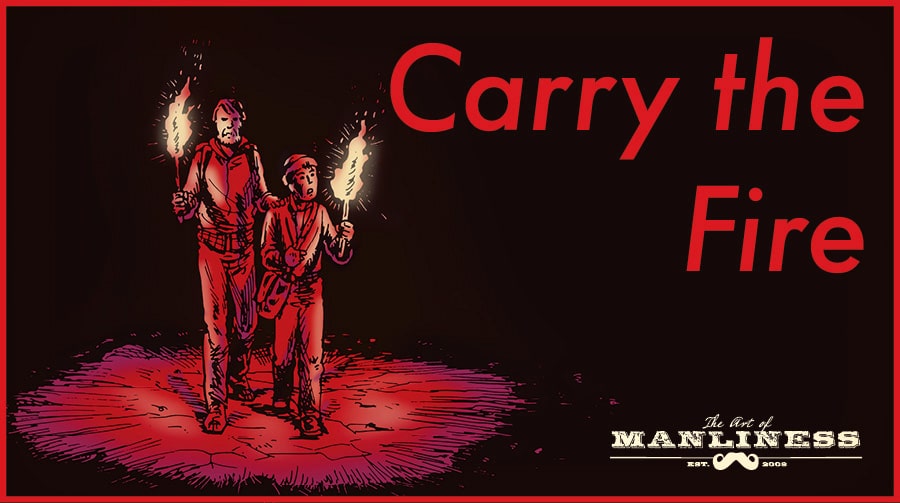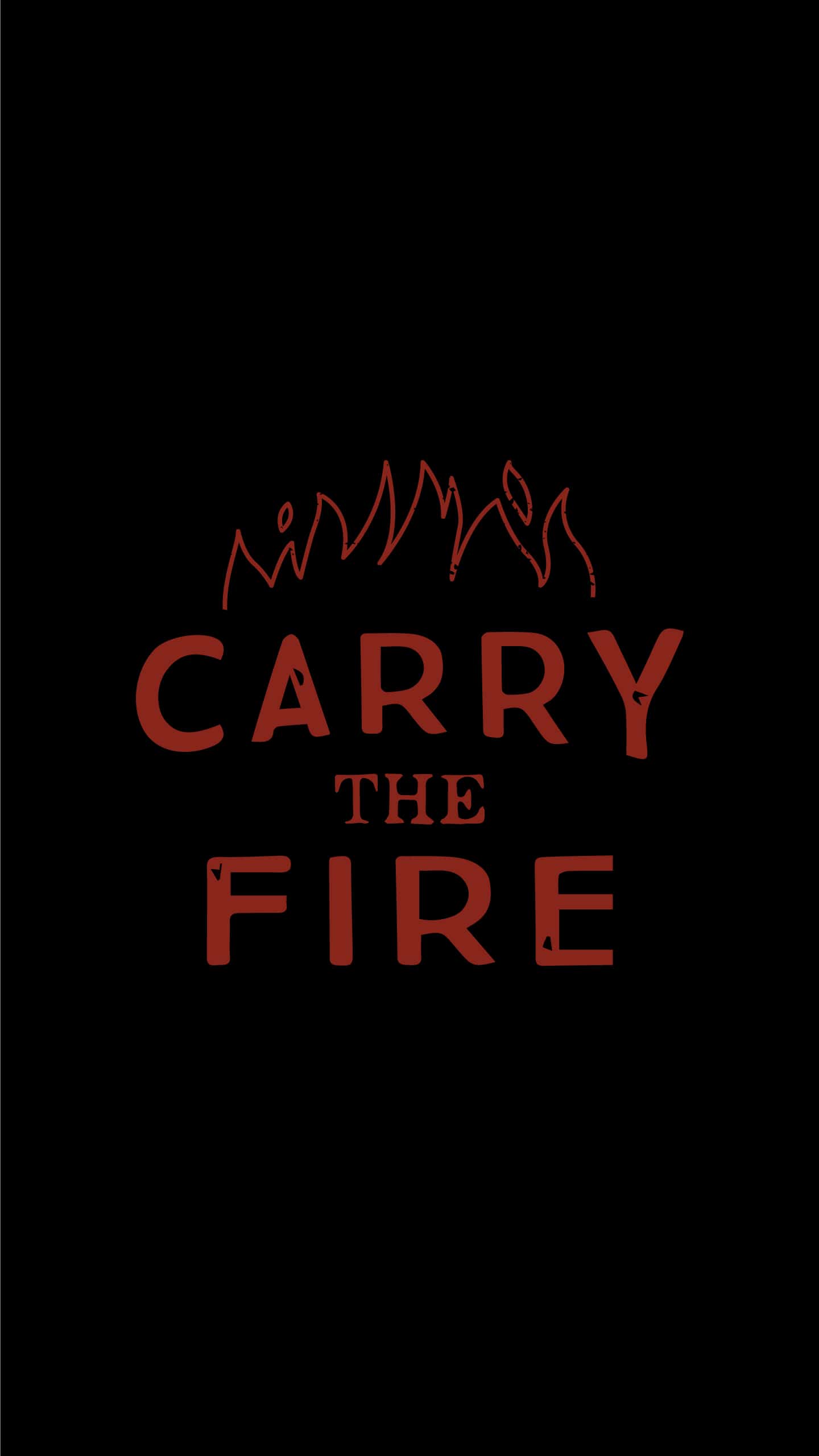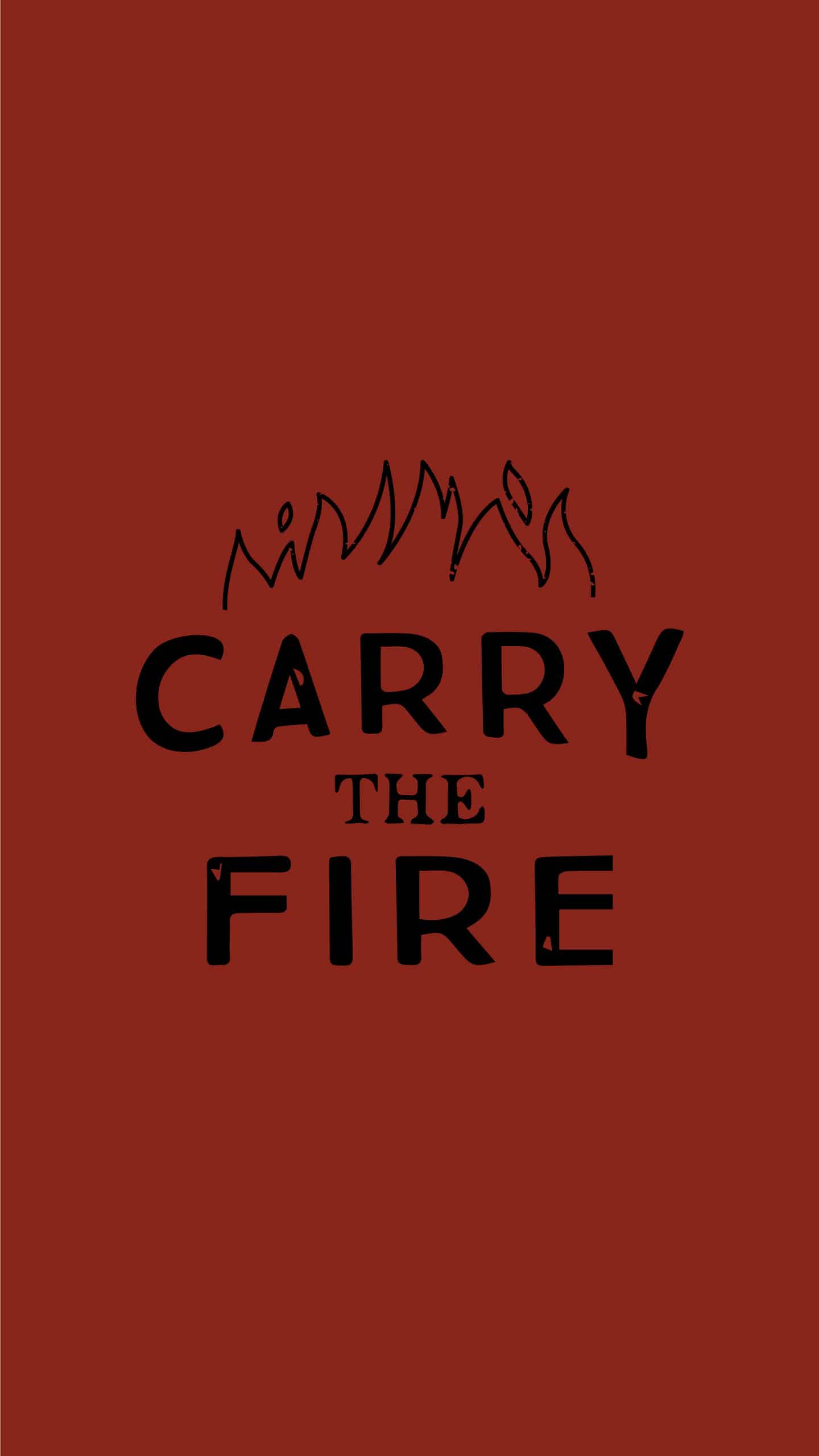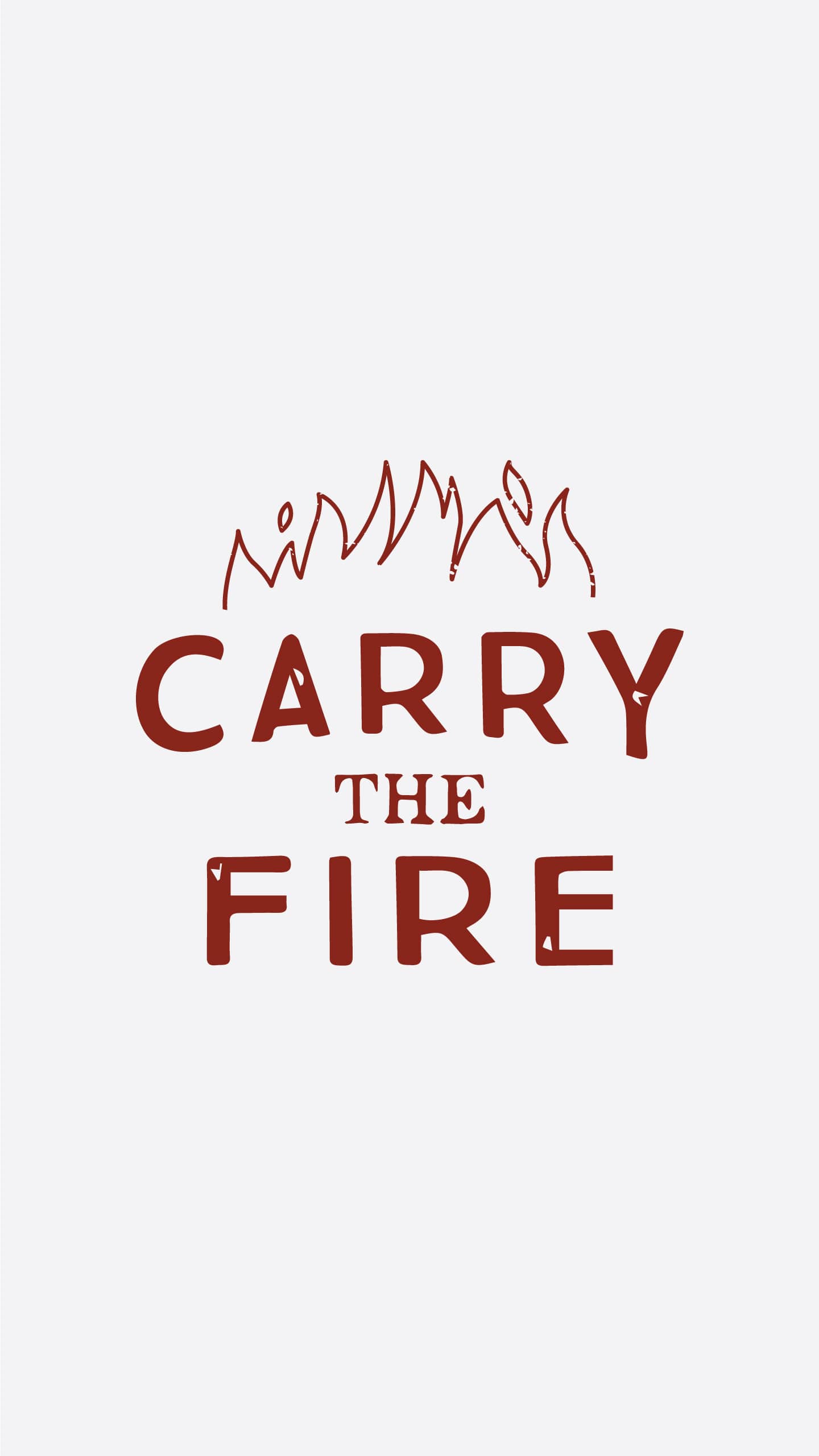
We’re going to be okay, arent we Papa?
Yes. We are.
And nothing bad is going to happen to us.
That’s right. Because we’re carrying the fire.
Yes. Because we’re carrying the fire.
Once a year I read The Road by Cormac McCarthy. The yearly reading has become almost a religious rite for me. Much like the tragic plays of ancient Greece, The Road provides me a much-needed cathartic release. Every time I get to the end of that dark, emotionally-eviscerating book, I’m sobbing. While no other book has ever made me cry, when I’m done with The Road, tears stream down my cheeks and into my mustache. All I want to do is hold my children and never let them go. If you’ve read the book, are a dad, and have a heart made of something other than stone, you’ll understand.
(If you haven’t read the book, you may want to stop reading this article — it contains spoilers.)
The Road has been called a love story between father and son, and nothing could better describe it. The book powerfully puts the beauty and sorrow of fatherhood in stark perspective, revealing paternal love intensely close to the bone.
An unnamed father and his son pilgrimage across a dreary, ashen, post-apocalyptic America, pushing a shopping cart of their supplies and perpetually scavenging for their next meal. All the while they’re on the lookout for the “bad guys‖ savage tribes of baby-eating men who maraud across the landscape in their jerry-rigged, diesel-run vehicles.
The father is sick and dying. He knows he won’t be around much longer to protect and provide for his young boy. A sense of being “thrown into the world,†as Heidegger put it, pervades the lives of these two individuals, who only have each other to rely on.
Throughout the story the man experiences moments of soul-deep anguish as he thinks about his son’s future in this bleak and desolate environment. He even contemplates smashing his son’s head with a rock to spare him from being raped and eaten by some filthy and depraved barbarian.
Yet at the same time, the man finds hope and goodness in his boy’s innocent sweetness, and thus the strength to continue on. Along their journey, he tells his son stories of the world before its destruction. He teaches him the physical skills and mental aptitudes needed to survive. But most importantly, the man teaches his son to “carry the fireâ€:
We wouldn’t ever eat anybody, would we?
No. Of course not.
No matter what.
No. No matter what.
Because we’re the good guys.
Yes.
And we’re carrying the fire.
And we’re carrying the fire.
Yes.
Okay.
For the man and his son, “the fire†is a metaphor not only for the will to live, but to live nobly. It’s an embrace of human goodness. It’s having hope when all seems hopeless. The good guys carry the fire; the bad guys don’t. In their current situation, moral lapses might be excused and rationalized as the difference between life and death. Father and son could choose, like the barbarians, to allow the ends to justify any kind of means.
But instead they decide to hold on to goodness despite all that. No matter how terrible things are in the world of The Road, as long as the man and his son continue to keep the fire burning inside of them, everything is going to be all right in the end. It’s tragically beautiful.
I want to be with you.
You cant.
Please.
You cant. You have to carry the fire.
I dont know how to. Yes you do.
Is it real? The fire?
Yes it is.
Where is it? I dont know where it is.
Yes you do. It’s inside you. It was always there.
I can see it.
Just take me with you. Please.
I cant.
Please, Papa.
I cant. I cant hold my son dead in my arms. I thought I could but I cant.
You said you wouldnt ever leave me.
I know. I’m sorry. You have my whole heart. You always did. You’re the best guy. You always were. If I’m not here you can still talk to me. You can talk to me and I’ll talk to you. You’ll see.
Carry the fire.
That phrase encapsulates perfectly the task of fatherhood. While I don’t face marauding hordes of sex-prisoner-keeping, baby-devouring vandals, I often share the same feelings as the nameless man in The Road. Like him, I sometimes feel like I’ve been thrown into the world with my children, that we’re strangers in a strange land, that I’m just figuring things out as I go.
And while I hope I’m not going to die anytime soon like the man in The Road, I know my time with my kids is limited. Gus just turned six and boy, have those years flown by. In just twelve more, he’ll likely be leaving me and Kate and heading out on his own. During that time, I’ve got to teach him all that I can to help him survive and thrive — I have to prepare him for a time when I’m no longer a constant presence in his life. The same goes for my daughter, Scout.
But the thing I worry about the most is whether I’m teaching my children how to be good and noble human beings even when their circumstances could provide excuses for moral laxity — lapses justified for the sake of self-interest, or brought on by bitterness, pessimism, and apathy. Will they choose idealism over cynicism? Virtue over vice? Decency over dereliction? Hope over hopelessness?
Am I teaching them to carry the fire?
Am I passing on the values I learned from people like my grandfather, parents, and other mentors?
Do I still carry the fire they passed to me or have I snuffed it out or let it grow cold?
If I am still carrying the fire, what am I doing to stoke the flame to keep it alive?
Does a light burn brightly enough within that others can feel that heat and warm themselves by it?
What am I doing to pass the fire to my children? Do I show them in my actions and words how to carry it? Am I intentional about telling them about the men and women who came before them who carried the fire despite hardships and setbacks?
When my children leave me when they’re adults, and I ultimately leave my children through death, will they be able to carry the fire forward? Will they know how to tend to it on their own and pass it to their children? Or will the fire be extinguished before future generations can pick up the torch?
I think, I hope, I’m doing an okay job with this task of fire carrying. But every time I read The Road it convicts me to do better. I try to be more humane, more civil. I’m more intentional about teaching those things to my kids. I try to be more hopeful, and less cynical.
Even if you’re not a dad yet, and may not ever become one, the modern day tragedy of The Road can still provide lessons and spurs to reflection. Are you still carrying the fire that’s been passed down to you from your ancestors? How does your behavior show that? Do you possess an inner light that warms all those you encounter?
Some of you might be thinking, “Well, my parents and grandparents were deadbeats and scoundrels. They definitely didn’t have the fire.†The fact that you recognize that indicates you’ve already got a nascent flame within you.
Feed it.
Do good. Be decent. Find others who are carrying the fire so you can combine your flames together into a roaring blaze
It’s easy to feel jaded and downhearted in today’s world — that your good actions will at best go un-rewarded and un-noticed, and at worst penalize you.
But that’s the price one sometimes pays to carry the fire. You willingly immolate to provide heat and light for a cold and dark world. Like I said earlier, it’s tragically beautiful.
Each morning when you get out of bed, think of picking up a torch, lighting it in a metaphorical campfire you always keep burning, and taking it along as you leave the house.
In the quiet moments you’ll experience throughout the day — when you’re sitting in standstill traffic, when you’re staring mindlessly into a smartphone screen, when you’re about to drift off to sleep — ask yourself:
Am I carrying the fire?
_______________
We’re big believers in moral reminders: little notes or symbols you put in your environment to remind you to live up to a certain ideal. To that end, we’ve created some free“Carry the Fire” smartphone wallpapers for you to download. Whenever you look down at your phone, you’ll get a gentle reminder to keep carrying the fire. Click on the color you want, download it to your smartphone, and set it as your wallpaper.





